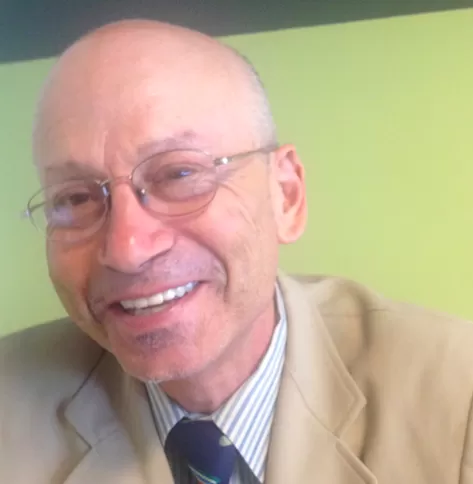Irvin Dawid discovered Planetizen when a classmate in an urban planning lab at San Jose State University shared it with him in 2003. When he left San Jose State that year, he took with him an interest in Planetizen, if not the master's degree in urban & regional planning.
As a long-time environmental activist, he formed the Sustainable Land Use committee for his local Sierra Club chapter and served six years on the Bay Area Air Quality Management District’s Advisory Council from 2002-2008. He maintains his interest in air quality by representing Sierra Club California on the Clean Air Dialogue, a working group of the Calif. Environmental Dialog representing business, regulatory and public health/environmental interests.
Major interests include transportation funding, e.g., gas taxes, vehicle miles traveled (VMT) fees, road tolls and energy subsidies that lead to unlevel playing fields for more sustainable choices.
He hails from Queens (Bayside) and Long Island (Great Neck); received an AAS in Fisheries & Wildlife Technology from SUNY Cobleskill and a B.S. from what is now Excelsior College.
After residing for three years on California’s North Coast, he’s lived on the San Francisco Peninsula since 1983, including 24 years in Palo Alto. Home is now near downtown Burlingame, a short bike-ride to the Caltrain station.
He’s been car-free since driving his 1972 Dodge Tradesman maxi-van, his means to exit Long Island in 1979, to the junkyard in 1988.
Major forms of transportation: A 1991 'citybike' and monthly Caltrain pass, zone 2-2. "It's no LIRR, but it may be the most bike friendly train in America."
Irvin can be reached at [email protected]
Governor Backs Environmental Alternative To 'Big Solar'
Environmental opposition to large solar and wind projects in the desert usually based on their biological impacts has long baffled many renewable power advocates. CA Gov. Jerry Brown expressed support for the alternative, 'distributed generation'.
Brookings Compares 'Zero-Vehicle Households' To Those With Vehicles
Not to be confused with zero-emission-vehicles, the Brookings Institution looks primarily at the demographics and access to jobs of what they define as zero-vehicle households. Access to vehicles reveals equity (income) and urban vs. suburban issues.
Complete Streets Arrives In Bay Area
Gary Richards, the Roadshow columnist for the San Jose Mercury News, provides many examples of redesigning streets for bikes, peds, and transit throughout the Bay Area, a direct result of the 2008 California Complete Streets legislation.
Texas Infrastructure Under Gov. Perry
Now that Gov. Perry has declared his candidacy for President, the Houston Chronicle has begun a series of articles to spotlight how infrastructure has fared under the state's longest serving governor. Transportation is the focus of the first report.
South Carolina's DOT Funding Predicament
The S.C. Dept. of Transportation is so broke that it won't be able to pay its contractors after meeting its payroll. It is depending on a payment from the FHWA and requesting additional reimbursements while rejecting federal funds for education.

























